Fellows 2024-25
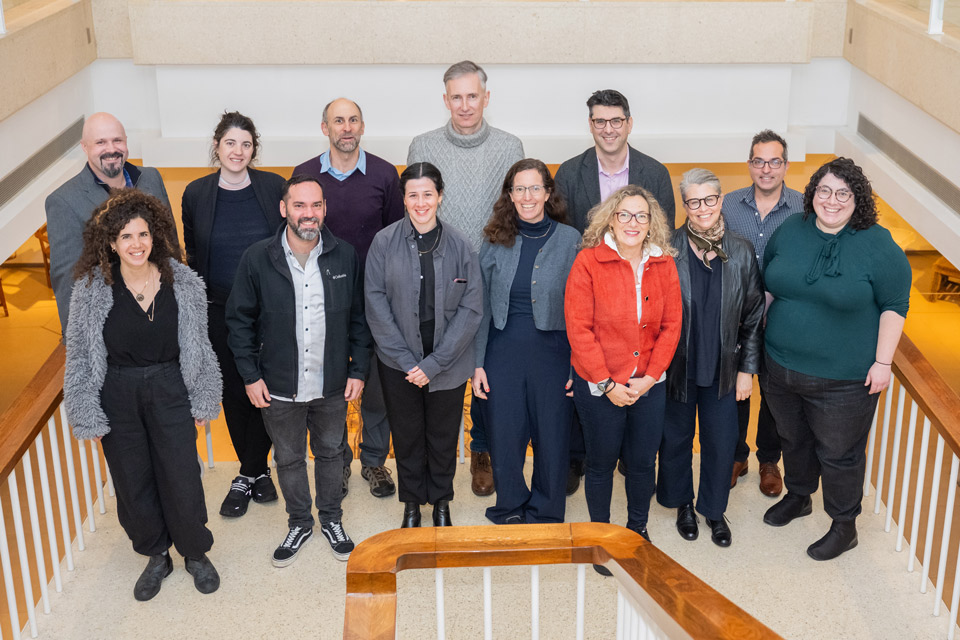
Digital Humanities in Israel Studies
Our 14 fellows explored the use of digital tools and artificial intelligence to study Zionist, Israeli, or Palestinian history, society, and culture from the late 19th century to the present. Their work considers what the digital age means for scholarship, and particularly for the study of Israeli and Palestinian material.
Methods are shifting in a rapidly growing field, as the recent exponential growth of AI, digital mapping, distant reading, digital visualizations, large language modeling, data scraping, and a myriad of other new technologies are being applied to scholarship in the humanities. The scope of material available for research, with vast archives of online materials, is also changing in profound ways, raising additional questions. How does the availability of new digital materials and archives affect the tasks of writing history, interpreting literature, mapping, and analyzing culture?
Our fellows' digital humanities projects offer multiple responses to that question. We showcased their projects during our April 7-8, 2025 conference. To explores these innovative projects, check out this playlist on our YouTube channel for brief videos on each project.
Visit the conferene page Explore the projects
Meet the Fellows
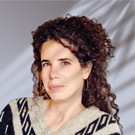
Yael Dekel serves as lead fellow for this year’s Institute for Advanced Israel Studies. In 2019 she launched "Roman Mafteach: Distant Reading of the Hebrew Novel," a digital humanities project that aims at collecting data on the Hebrew novel as a whole, combining the traditional close reading with distant reading. During her time at SCIS, she will complete “Space and Time in the Hebrew Novel.” The project, conducted with Uri Roll, professor in the Department of Desert Ecology at Ben-Gurion University of the Negev, maps locations in which novels take place with global and national perspective, creates networks of these locations, and tracks trends in time in the representation of urban vs. natural settings.
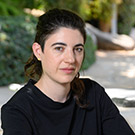
Rona Aviram is an early career researcher with a diverse academic background that spans the life sciences, philosophy, and history of science. Her research journey began with a focus on circadian biology during her PhD in Life Science at the Weizmann Institute of Science. Her interests evolved toward understanding the broader processes of science-making and knowledge production. Currently, Dr. Aviram is a postdoctoral researcher at the Computer Science dept. at Weizmann Institute of Science. Her research utilizes digital archives, such as Wikipedia, to study contemporary science, revealing the intricate connections between scientific knowledge and public interest. Through these efforts, Aviram is committed to advancing interdisciplinary research and a deeper understanding of how knowledge is shaped and disseminated in the digital age.
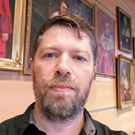
Eliezer Baumgarten serves as the Lab Manager of ELijah-Lab, the Digital Humanities Lab in the Faculty of Humanities at the University of Haifa. Currently, Dr. Baumgarten investigates the transfer of knowledge between cultural spaces throughout the modern era, examining these issues using quantitative methods, such as network analysis, text reuse detection, and more. Dr. Baumgarten is involved in several digital projects, including the Ilanot Project, which focuses on digital editions based on ontology for text-rich visual objects; an edition and thought map for the magical literature of Rabbi Moses Zacuto; and research on the early Hebrew biography of Chaim Yosef David Azulai through network analysis automatically extracted from bibliographic literature.
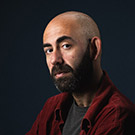
Omer Benjakob is an investigative journalist and the cyber and disinformation reporter at Haaretz, with an interest in the intersection of technology, national security and politics. He has participated in a number of international investigations, among them Project Pegasus and Team Jorge, a groundbreaking undercover investigation into the private disinformation market. His investigation into the sale of spyware to a militia in Sudan was shortlisted for the EU's European Press Prize for Investigative Journalism (2023). His writing on Wikipedia has been published in multiple outlets as well as academic journals. He is also an associate research fellow at the Center for Research and Interdisciplinarity (LPI) in Paris, a research institute affiliated with the Université Paris Cité focused on open science.
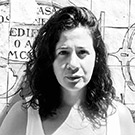
Ella Elbaz is an assistant professor in the Arabic language and literature department at Haifa University. She completed her PhD in comparative literature at Stanford University and is a scholar of Israeli and Palestinian literature and art. Her upcoming book explores futurist imaginations of Israel/Palestine. Dr. Elbaz's articles about the ethics of comparison and historical poetics appeared in The Journal of Postcolonial Writing and The Journal of Arabic Literature and forthcoming in Comparative Literature. Visit her website to learn more.
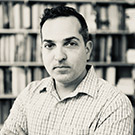
Dotan Greenvald is an associate fellow at the Center for Jewish Studies at Harvard University and a lecturer at the Elie Wiesel Center for Jewish Studies at Boston University. He studies communities that have been marginalized in political narratives, and the evolution of civil society in the geographic, economic, and cultural periphery of the modern state of Israel and Palestine. Dr. Greenvald's research on Zionism and Consumerism during the British mandate period explores the efforts of Zionist institutes and grassroots groups to turn the Jewish consumer into a national consumer. Through analyzing their successes and failures in this endeavor, this work draws the boundaries of Zionist influence in the everyday life of the Yishuv.
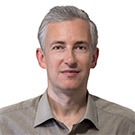
Sergii Gurbych earned an MA (2017) and PhD (2021) from the Department of Jewish Studies at Heidelberg University. From 2001 to 2015, he also served as a senior lecturer in Hebrew language, Hebrew literature, and Jewish history at the Interdisciplinary Certified Program in Jewish Studies at the National University of ‘Kyiv-Mohyla Academy’ in Kyiv, Ukraine. At the University of Illinois Urbana-Champaign, from 2021 to 2024, he researched the application of Digital Humanities to Identity and Jewish Studies. Since early 2024, Dr. Gurbych has been working in a postdoctoral research position in the Department of History at Vilnius University. His current research involves the examination of Jewish manuscripts and other interwar period documents from the former YIVO Institute archives that remained in Lithuania.
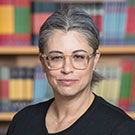
Dr. Dana Kaplan is a senior lecturer in the Department of Sociology, Political Science, and Communication at the Open University of Israel. Her expertise lies in cultural class analysis and critical sexuality studies. Her research explores how social and symbolic boundaries are constructed within neoliberal capitalism and examines patterns of valuation in various social contexts, including human beauty, sexual capital, and ethical consumption. Her publications on Jewish-religious renewal and poverty among Israeli women have received best paper awards. She has been awarded two grants from the Israel Science Foundation. Dr. Kaplan's book, "What is Sexual Capital?" (co-authored with Eva Illouz), published by Polity in 2022, has been translated into seven languages.
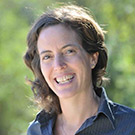
Renana Keydar is an assistant professor of Law and Digital Humanities at the Hebrew University of Jerusalem. She is the academic director of the Center for Digital Humanities DH@HU and heads the Alfred Landecker Lab for the Computational Analysis of Holocaust Testimonies. Dr. Keydar is one of the leading members of the Edut 710 (Testimony 710) initiative—a grassroots, volunteer-based, civil organization for the documentation of survivor testimony of the October 7, 2023 attacks.
Dr. Keydar holds a PhD in comparative literature from Stanford University. Keydar’s research analyzes legal and personal narratives of mass atrocity and systematic human rights violations using advanced computational text analysis techniques from the fields of Digital Humanities (DH) and Natural Language Processing (NLP).

Mordy Miller is a postdoctoral fellow and lecturer in the Department of Jewish Thought at Ben-Gurion University, where he investigates the intersection of Kabbalah and political ideology in contemporary Israel. With an extensive record of publications and presentations at international conferences, Mordy’s work spans Jewish philosophy, political theory, and religious thought. He also leads the Singapore Genizah Project.
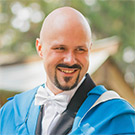
James Harry Morris is an associate professor at Waseda University and the Waseda Institute for Advanced Study. Dr. Morris focuses on the history of Abrahamic religions in Japan, interfaith dialogue, and the digital humanities. His current research projects include "Syriac Christianity, Syriac Studies and Modern Japan: An Intellectual History," which is funded by a grant from the Japan Society for the Promotion of Science, and "'Kirishitan-ban' in the Digital Age: A Study of the Opportunities and Limitations of Applying Digital Methods to 'Kirishitan-ban,'" which is funded by the DNP Foundation for Cultural Promotion Graphic Culture Grant. His most recent book, "Digital Humanities and Religions in Asia: An Introduction," was co-edited with L.W.C. van Lit and published by De Gruyter in early 2024.
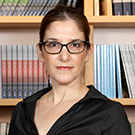
Vered Silber-Varod is the primary consultant for the Digital Humanities and Social Sciences (DHSS) at the TAD Center for Artificial Intelligence and Data Science at Tel Aviv University. From 2018 to 2022 she was the director of the Open Media and Information Lab (OMILab) at the Open University of Israel. There she managed Digital Humanities and Social Science (DHSS) projects and was also a principal investigator herself. In recent years, Dr. Silber-Varod's research has focused on sociolectal variability in prosody of the speaker's role in the conversation. In her studies, she uses prosodic analysis of conversation that targets sociolinguistic theoretical frameworks, such as power relations, dynamicity, and self-positioning by automatic analysis of large numbers of conversations.
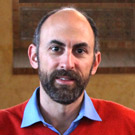
Daniel Stein Kokin is a Jewish studies scholar presently affiliated with Arizona State University and the Ramaz School in New York City. Dr. Stein Kokin’s writings have embraced topics as diverse as rabbinic literature, Jewish historiography, and Israeli music and film. Recent publications include the edited volume "Hebrew between Jews and Christians" (De Gruyter, 2022) and "'Arch-Enemy': The Polemic against Titus in Benjamin of Tudela’s Book of Travels" (Hebrew Union College Annual, 2023). Stein Kokin also creates academic performances, including “Breach of Protocols: Revisiting Zion’s Elders,” and is the founder and director of the “All the Points” project, which produces interactive, online maps tracing the history of modern settlement in the Israeli-Palestinian region.
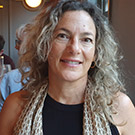
Galia Yanoshevsky is full professor at Bar-Ilan University’s French department. She is a French literature and Discourse analysis scholar investigating the frontiers and interaction between literary and media discourse and between poetic and disposable texts. Her books, "Les discours du Nouveau Roman" (2006) and "L’entretien littéraire" (2018), document authors’ endeavors in the media. In 2009 she published two seminal articles on the manifesto genre, the contours of which she continues to explore. In recent years she has been studying collective memory through multimodal discourses such as tourist guidebooks and national photobooks. She currently leads a digital humanities project, archiving heritage photobooks of Israel in searchable form.